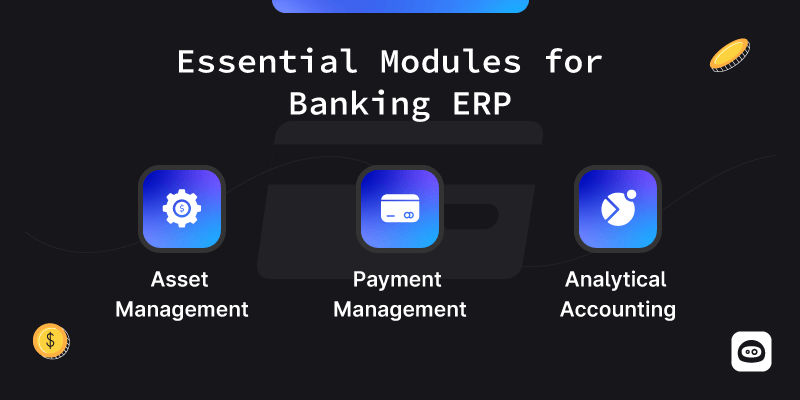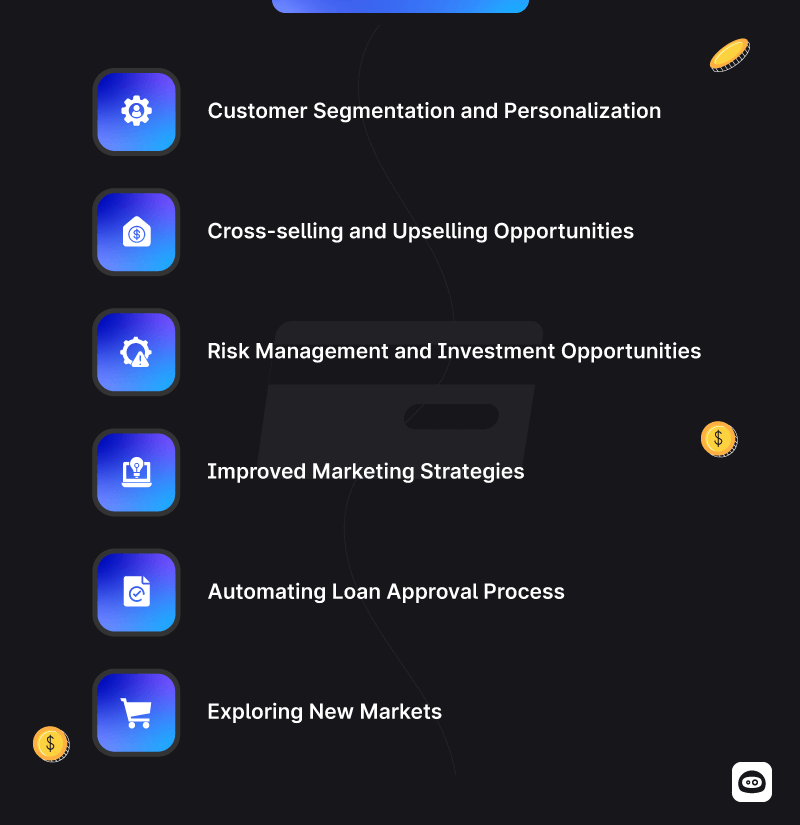What Is an ERP System?
Enterprise Resource Planning (ERP) is a comprehensive, integrated software solution designed to streamline and optimize various aspects of business operations. At its core, an ERP system acts as a central repository for a wide range of data and processes within an organization. It integrates various business functions and departments, facilitating seamless communication and data exchange across the entire enterprise.
ERP systems encompass a multitude of functions and features, including financial management, human resources, supply chain management, customer relationship management, and more. These systems offer a holistic view of an organization’s operations, enabling informed decision-making, enhancing efficiency, and driving growth.
While ERP systems were originally developed for manufacturing companies to manage production, inventory, and resource planning, they have since evolved to serve various industries, including the banking sector. In the context of banking, ERP systems are tailored to address the unique challenges and requirements of financial institutions, helping them manage complex financial operations, risk assessments, compliance, and customer service.
Now that we have a foundational understanding of an ERP system, let’s explore why the banking industry is increasingly turning to these systems, the key benefits they offer, and the limitations banks may encounter during implementation. We’ll also discuss how to shape a robust ERP integration strategy.
Essential Modules for Banking ERP

Asset Management
The Asset Management module offers a holistic view of a bank’s asset portfolio, aiding in asset tracking, evaluation, and depreciation calculations for precise financial reporting and strategic decision-making.
Payment Management
The Payment Management module optimizes various bank payment operations, encompassing inbound and outbound transactions, electronic funds transfers, and cross-border payments, improving transaction speed, accuracy, and security for heightened customer trust and satisfaction.
Analytical Accounting
The Analytical Accounting module offers robust financial analysis capabilities, providing deep insights into the bank’s financial data for profitability analysis, budget management, and strategic decision-making through customizable reporting, real-time data access, and regulatory compliance support to enhance business performance.
The Banking Landscape Today
Before we discuss the benefits and limitations of ERP in banking, it’s essential to understand the dynamic environment in which financial institutions operate today. The digital revolution, changing customer expectations, regulatory compliance, and market volatility have created an intricate web of challenges for banks.
- Digital Transformation: Banking is no longer confined to traditional brick-and-mortar operations. With the rise of online and mobile banking, customers expect real-time, convenient, and personalized services. Meeting these expectations requires robust digital infrastructure.
- Regulatory Compliance: The financial industry is subject to stringent regulations. Compliance with these regulations is not only a legal obligation but also a critical aspect of maintaining trust and reputation. Keeping up with ever-changing compliance requirements is a formidable task.
- Data Management: Banks are data-driven institutions. Efficient data management and analytics are crucial for risk assessment, customer insights, and operational efficiency. Managing vast amounts of data is a growing challenge.
- Risk Management: The banking sector is inherently exposed to various risks, including credit, market, operational, and cyber risks. Effective risk management is essential to protect assets and maintain stability.
The Role of ERP in Banking
Enterprise Resource Planning (ERP) systems are comprehensive, integrated software solutions designed to streamline and optimize various aspects of business operations. While initially developed for manufacturing, they have evolved to cater to the specific needs of the banking industry.
- Centralized Data Management: ERP systems provide a unified platform for managing various types of data, including customer information, financial transactions, compliance records, and more. This centralization of data enhances accessibility and data integrity.
- Enhanced Customer Service: ERP systems enable banks to deliver personalized and efficient services. With a 360-degree view of customer data, bank employees can better understand and cater to the needs of individual customers, leading to higher customer satisfaction and loyalty.
- Regulatory Compliance: Banking ERP solutions are equipped with modules specifically designed for compliance management. They help institutions keep up with changing regulations, track compliance efforts, and generate necessary reports, reducing the risk of penalties and reputational damage.
- Risk Management: ERP systems facilitate better risk assessment and management. By integrating risk data and analytics tools, banks can identify potential risks early, respond proactively, and implement mitigation strategies.
- Cost Reduction: ERP systems streamline various operational processes, reducing the need for manual and duplicate data entry. This not only increases efficiency but also reduces operational costs.
- Data Analytics: The data analytics capabilities of ERP systems are instrumental for understanding market trends, customer behavior, and other critical insights. This helps banks make informed decisions and identify growth opportunities.
How do ERP Systems Benefit Banks in Finding New Business Opportunities?

- Customer Segmentation and Personalization
- Cross-selling and Upselling Opportunities
- Risk Management and Investment Opportunities
- Improved Marketing Strategies
- Automating Loan Approval Process
- Exploring New Markets
Key Benefits of Implementing ERP in Banking
Now that we’ve established the need for ERP in the banking sector and what ERP systems entail, let’s delve deeper into the key benefits of implementing such systems. A crucial aspect of realizing these benefits is shaping a robust ERP integration strategy.
Efficiency and Productivity
One of the primary benefits of ERP in banking is improved efficiency. These systems automate many routine tasks, reducing the reliance on manual data entry. This, in turn, leads to increased productivity among bank employees, as they can focus on value-added activities instead of administrative chores.
Streamlined Operations
ERP systems streamline various banking operations, from account management to loan processing and document handling. This results in a smoother, more efficient workflow, reducing errors and delays.
Enhanced Customer Experience
Modern banking is all about providing superior customer service. ERP systems offer a 360-degree view of customer data, allowing banks to provide personalized and timely services. Customers can access their account information, apply for loans, and receive support more conveniently, increasing overall satisfaction.
Real-Time Insights
ERP systems enable real-time data analysis, giving banks the ability to make informed decisions promptly. This is particularly vital in the context of risk management and investment decisions, where timely insights can make a significant difference.
Regulatory Compliance
Staying compliant is a significant challenge for banks. ERP systems come equipped with modules designed for compliance management, ensuring that the institution adheres to all necessary regulations and reporting requirements.
Data Security
Security is a top priority in the banking sector, as institutions deal with sensitive financial and personal data. ERP systems offer advanced security features to protect customer information, financial records, and other confidential data.
Cost Reduction
Banks can significantly reduce operational costs by implementing ERP systems. These systems minimize the need for manual data entry, reducing the potential for errors and redundant work. Additionally, they can help identify cost-saving opportunities within the organization.
Scalability
As banks grow and expand their services, their IT infrastructure needs to scale accordingly. ERP systems are highly scalable and can accommodate the growing needs of a bank, making them a long-term, cost-effective solution.
Competitive Advantage
In a competitive industry like banking, staying ahead of the competition is vital. ERP systems empower banks with the tools and data needed to make strategic decisions, launch innovative products, and provide exceptional customer service, all of which contribute to a significant competitive advantage.
Limitations of ERP in Banking
While ERP systems offer numerous advantages, they are not without their limitations, and banks must be aware of these potential challenges:
- Implementation Costs: The initial investment required for ERP implementation can be substantial. Banks need to allocate resources for software licenses, hardware infrastructure, and the cost of training employees.
- Complex Implementation: ERP implementation is a complex process that requires careful planning and execution. It can disrupt existing workflows, and any errors during implementation
Conclusion
Implementing an Enterprise Resource Planning (ERP) system in the banking sector is not a decision to be taken lightly. While the benefits are substantial, it’s important to recognize and address the potential limitations and challenges that can arise during implementation and ongoing use.
Banks that successfully navigate these challenges can position themselves for a brighter future. ERP systems offer the tools and capabilities needed to enhance efficiency, provide superior customer service, ensure compliance



